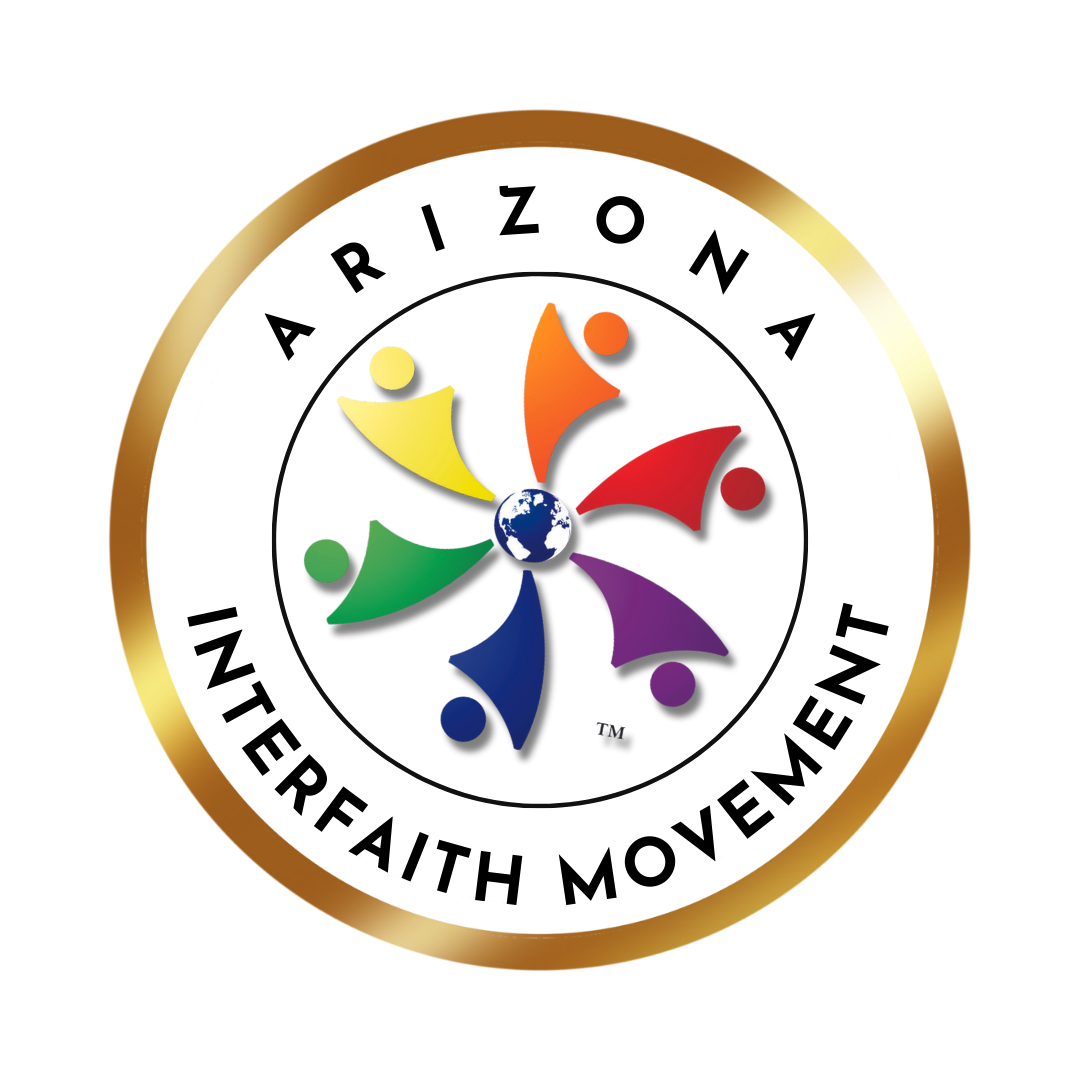The Arizona Interfaith Movement has a responsibility from the Department of Education to educate Arizonans on the Golden Rule in offering opportunities to learn and practice civility, respect and empathy. At a recent Interfaith Council meeting, a diverse panel of council members discussed ways to do this in preparation for one of the most combative presidential election seasons we’ve ever seen. Some suggested there was no hope for us this time because no one is willing to discuss politics civilly. Board president, Rock Fremont, suggested that if we can’t do this when it’s hard, “we might as well pack up and go home.”
Council member, Mark Klym introduced a process he had used called Talking Circles. The council found the idea interesting and planned a community luncheon focused on evaluating the Talking Circles form of communication. At the very least, it would turn out to be an attempt at a diverse public discussion; at most it could result in the rediscovery of versatile and valuable tool, that could change the climate of election politics in Arizona for the better.
This peace-building group from the Arizona Interfaith Movement gathered on May 17, 2024, with members of the community to begin Experiment 1 of Talking Circles. Also called peacemaking circles, the process originated from traditions of North American indigenous tribes and is based on the principle of sharing power instead of having power over one another.
Topic:
Share your perspective on the difference between Tolerance, Respect, and Acceptance.
Prompt Questions:
- How might these attitudes and actions apply to self, family, work, and community dynamics?
- What is the intersection with the Golden Rule?
- Can you separate a person from their actions?
Evaluation survey questions for Experiment 1 were developed by Albert Celoza, Ph.D. – awarded Arizona Professor of the Year – 2001 by the Carnegie Foundation for the Advancement of Teaching, and recent doctoral graduate, Annalisa Eustace, Ph.D. Results showed that individuals collectively believe they gained “Quite a Bit” of knowledge from the experience. They also concluded by a majority that the quality of the presentation, guided by Dr. Albert Celoza and Mark Klym, was “Excellent”- the highest rating available. One responder even commented that they “have more faith in the human race” after this experience and that “we are going to be ok,” finishing with, “we are humanity!” Others commented: “Great organization, structured but not stiff,” and “Thanks for the great lunch and great program.” A few mentioned that it went too long so future attempts at this may need to stress the Talking Circles principle of “lean speech” or plan for more program time since novice speakers, who may not yet have the skill of being concise, are encouraged to speak—an affect of the talking stick. One person said their takeaway from this program was learning to “stop talking before people stop listening.”
Mark Klym, who brought the idea to the council, stated, “It was an honor to help facilitate this event. A wonderfully diverse intersection of Arizona participated. We were young and senior, conservative and liberal. We represented dozens of cultures, faith traditions and beliefs. All were welcome. All of us came together and shared profound thoughts and experiences about the relationship between tolerance, respect and acceptance. We lived the Golden Rule by demonstrating how to build bridges of peace. We vowed to repeat this exceptional Talking Circle Process and offer it to the community. Our goal is to help bring AZ together; to celebrate and reconcile our differences; to create Nonviolent win-win solutions. Indeed, the Beloved Community is within reach for all of us.”
Many participants commented on their excitement of the “perfect” tool for maintaining order and promoting inclusion in the circles—a talking stick. The larger group was divided into smaller circles, each with a talking stick and a neutral “Guardian” who helped others remember their commitments to the guidelines of the experiment.






Evaluation surveys for Experiment 1, distributed directly after the event, showed that people believe the skills they gained will be “A Great Deal” of help to them and their work/organizations in the future. Participants were also able to be introspective and realize their current bad habits of communication, vowing to make adjustments to their behaviors. Many said they wanted to work on making eye contact with the speaker and deeply listening rather than letting inner thoughts of what to say next dominate.
Interfaith Council member Anne Taylor included, “We also talked about tolerance, respect and acceptance. It was an insightful journey on the spot” and the Arizona Interfaith Movement is expected to invite many more of you to join them for Experiment 2 in the near future.

